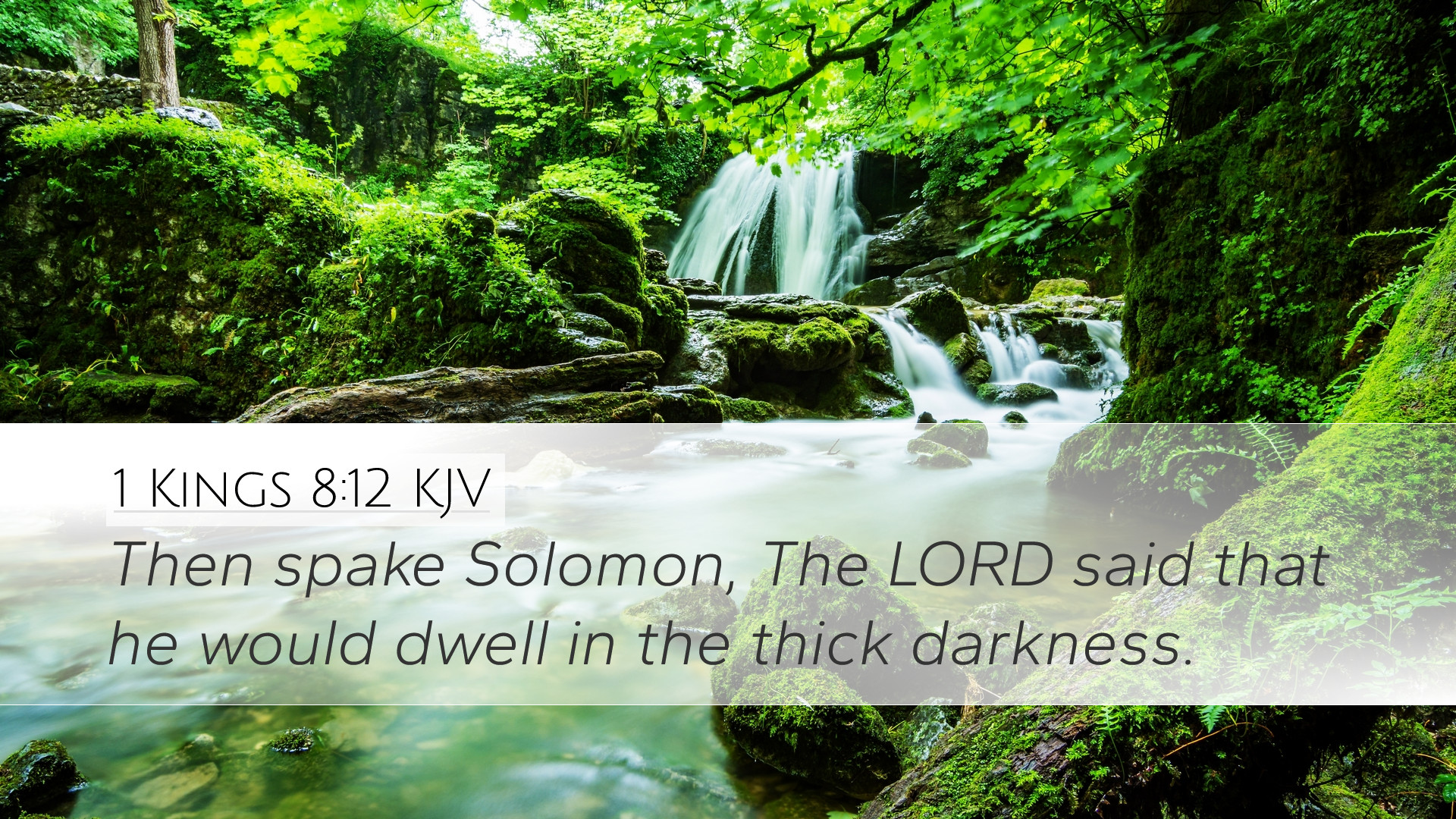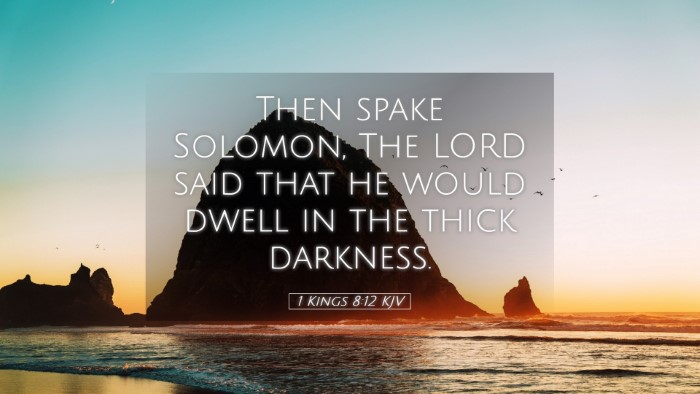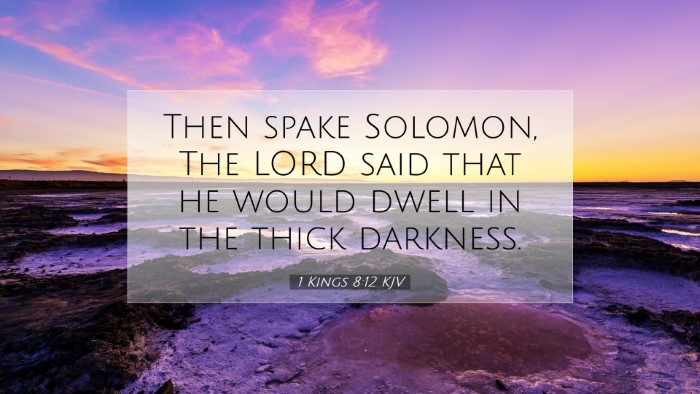Commentary on 1 Kings 8:12
Verse Reference: 1 Kings 8:12 - "Then spake Solomon, The Lord said that he would dwell in the thick darkness."
Introduction
This verse captures a profound truth about God's presence and the nature of divine communication. Solomon, during the dedication of the temple, reflects on the Lord's intention to dwell in a way that is both transcendent and immanent. This commentary collates insights from various public domain sources, providing a multifaceted perspective on this significant passage.
Meaning of the Verse
In this statement, Solomon acknowledges a key aspect of the divine nature: God's dwelling in "thick darkness." This phrase can be interpreted as a symbol of God's holiness and the mystery surrounding His presence. It speaks to the idea that while God is near, His essence surpasses human understanding.
Insights from Matthew Henry
Matthew Henry elaborates on the symbolism of "thick darkness," suggesting that it represents the awe and dread of God’s holiness. He notes that God often reveals Himself in ways that conceal more than they reveal, inviting respect and reverence. Henry points out that the temple functions as a divine dwelling place; however, God's true essence far exceeds any human-made structure:
- Divine Mystery: Our understanding of what it means for God to dwell among humanity is limited.
- Holy Separation: God's dwelling in darkness signifies His separation from sin and the human condition.
Insights from Albert Barnes
Albert Barnes highlights the context in which Solomon speaks these words. He emphasizes the transition from a mobile worship system (the tabernacle) to a permanent structure (the temple). Barnes reflects on the implications of God's dwelling in darkness, suggesting that it evokes humility among the worshippers:
- Transition of Worship: The dedication of the temple symbolizes God's commitment to His people while still maintaining His transcendent nature.
- Humility in Worship: The acknowledgment of "thick darkness" reminds believers of their need for reverence in the presence of God.
Insights from Adam Clarke
Adam Clarke's commentary delves into the theological implications of God's dwelling in darkness. He states that God’s presence in the thick darkness during the giving of the Law at Sinai is echoed in this verse. Clarke emphasizes the importance of understanding that God's nature is beyond human comprehension:
- God as Unfathomable: Clarke suggests that acknowledging God's indistinct presence leads to a profound respect for His sovereignty.
- Historical Context: Drawing from the Exodus narrative, the darkness symbolizes the divine majesty that instills fear and reverence.
Theological Reflections
The theological themes emerging from this verse revolve around the duality of God's nature: simultaneously proximity and transcendence. This sets a framework for understanding worship, as God desires relationship with His people while also requiring acknowledgment of His holiness:
- God's Holiness: The thickness of darkness signifies God's pure nature, unapproachable by sinful humanity.
- Invitation to Worship: Even within this thick darkness, God's desire to dwell with mankind is evident, highlighting His grace.
Practical Applications
For pastors, students, and theologians, reflecting on 1 Kings 8:12 presents opportunities to explore deeper themes of worship and relationship with God:
- Encouragement for Worship Leaders: Emphasize the need for reverence in worship settings, recognizing God's holiness.
- Study on God's Attributes: Engage in studies that dive into God's characteristics as both near and far, intimate and mysterious.
- Encourage Personal Holiness: Challenge congregations to pursue holiness in light of God's transcendent nature.
Conclusion
1 Kings 8:12 serves as a potent reminder of the divine paradox inherent in worship—the God who is both present and hidden. As Solomon's words reflect, while the Lord's dwelling in thick darkness may invoke solemnity and humility, it simultaneously offers the promise of His attentive presence. Through this understanding, believers are called to engage deeply with God, approaching Him in both awe and intimacy.


